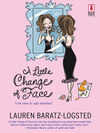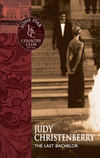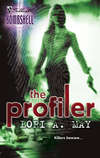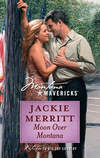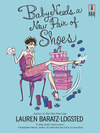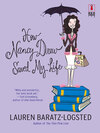Kitabı oku: «A Little Change of Face», sayfa 3
6
Dr. Berg was right: my illness got worse.
Oh, did it get worse.
The hardest thing about living alone is being sick all by yourself.
Home for me was a condo three-quarters of the way up a high hill in Danbury. I’d purchased it the year after I got the job at the library, so I’d been living there for a long time, but you couldn’t really call it a home. Maybe that’s the thing about condos; even when you own one outright it still feels like temporary lodging, like the place you’re living only until you get serious about what you’re going to do in life. At any rate, that was certainly the case with my condo, which I’d only decorated in the most marginal sense. Sure, I’d hung things on the wall—framed photographs that Best Girlfriend, who had made a whole career out of being something of a camera buff, had taken. And of course there was furniture, mostly of the looks-like-Domain-but-bought-at-a-shop-cheaper-than-Domain variety. I’d even painted: yellow in the tiny kitchen, leaf in the bathroom, heather in the dining and living rooms, periwinkle in the master bedroom. Every now and then I bought a few plants; but, with my black thumb, none of them ever survived for very long. So, despite my meager efforts, it still all had the look of a way station, a place to provide temporary shelter until I found where I was really meant to be.
For a week I remained there, alone in my temporary shelter, contemplating my current pain and the past life I had lived.
There are really no words to describe the physical pain of chicken pox at thirty-nine. I’d certainly experienced my own fair share of pain in my life—the usual sprains and broken bones brought on by a life lived both athletically and carelessly. (Okay, I’m a klutz.) And I’d even had a fair amount of dental work done without benefit of Novocaine. (I hate needles.) But nothing had prepared me for this. (Nothing.)
I wondered, through my pain, if this was what it had been like for Sarah, the girl who’d given me the chicken pox. Had she been this miserable? A part of me, the part that was still irrationally mad at her for giving the disease to me—when really it was her mother I should be mad at, for letting her out of the house!—was glad in a vengeful way. But then I remembered what Dr. Berg had said about it being much harder the older you are and I was suddenly glad to realize Sarah hadn’t suffered as much. After all, it wasn’t her fault she’d been out and about, it was her mother’s.
For the first three days, my fever raged at 103. And, as the pocks spread downward from my face and chest, eventually covering my entire body—even places that it would be indelicate of me to mention, but damn!—it became as though a thousand painful bonfires were roaring beneath my skin. When awake, I tried to obey Dr. Berg, tried not to scratch; but whenever I would actually fall asleep, I’d wake to find that I’d been involuntarily scratching while unconscious. I took the oatmeal baths as recommended—gross!—but they were just a stopgap measure, only serving to relieve the pain for the two twenty-minute periods a day I was submerged in the tub.
Of course, my mother offered to come over and take care of me.
“Scarlett, you shouldn’t be alone!”
“Um, really, that’s okay, Mom.” Please don’t come, pleasedontcome, pleasedontcome, I fervently prayed. The last thing I needed was for her to walk in the door and, first thing, tell me how awful I looked.
As if I didn’t already know.
Each morning, as the illness progressed, I rose, dragged myself to the bathroom, looked in the mirror. And then really-really wished I could avoid looking in the mirror. For, each day, I looked less and less like the me I’d always known. What had started out as a few pinkish-red spots had turned into an angry eruption, the spots multiplying and taking on the appearance of a plague until I no longer recognized myself. I didn’t know this woman. This woman was ugly.
Again, I found myself wondering what it had been like for Sarah, encountering an ugly version of herself in the looking glass. True, Dr. Berg said kids didn’t get it as bad, but I was sure he was referring to the pain and not the pocks. Surely, the quantity of pocks would still be great. Had Sarah felt as horrified at her image as I felt at mine now? Had she been scared, or at least reluctant, to have her friends see her? Why, when I had first seen her, I’d been sure her problem was prepubescent acne and I’d pitied her.
I pitied me now.
What, I began to wonder, would life be like if I always looked like this? What if this was the face that the world saw all the time?
As Pam had pointed out, and as I well knew, I’d never had any problem attracting men, being that literature-defying rarest of birds: an attractive librarian with a good sex life. Okay, maybe I’d never managed to marry any of those men but I’d never had trouble attracting them. I’d always assumed, unlike what Pam implied, that men were attracted to me because, well, I was just so damned much fun to be with.
I was the girl that, never mind men needing excuses to justify playing poker, played poker with.
I was the girl at the ball game, always rooting for the right team.
I was the girl who was nice.
I was the girl who was fun.
You’re probably wondering right now, “If she’s so godawful wonderful, so nice, then why hasn’t anyone asked her to marry them yet?”
Actually, I had been asked, more than once, but that’s not the point here. Because this isn’t so much a “Why isn’t she married yet?” story, as it is a “Why doesn’t she seem to care that she isn’t married yet?” story.
I guess I don’t want things just because everyone else has them.
I guess I don’t want to settle.
I guess I’ve just been—gasp!—waiting for the right man.
Best Girlfriend always maintained that not only am I too nice, but that I also scare men.
“I scare men?”
“Of course you scare them, Scarlett. Men are more terrified of a woman who seemingly isn’t looking for something than they are of a woman who obviously is.”
“You mean they worry about what I might have up my sleeve?”
“Oh, who the hell knows why they think like they do? They’re men!”
“So then why do they keep asking me out, if they’re so scared?”
“Because they’re men!”
“You’re kind of working that angle both ways, aren’t you?”
“Not really. They ask you out because you’re bright and you’re beautiful and you’re funny and you’re available. They may be men, but they’re not totally stupid.”
“But you think they’re all scared of me?”
“Yup.”
Nice and scary; scary and nice—what a combination.
But, I wondered now, how many men would ask me out if this face and body—this Put-Me-in-the-Zoo face and body—was always the first thing they saw upon meeting me?
Naturally, my local friends—Pam, T.B. and Delta—all of whom had been smart enough to have chicken pox when they were kids, offered to come over, to bring me things, to keep me company.
But I declined.
At first, I declined because the pain was too intense; it was all I could think about. But as the third day of confinement turned into the fourth, and the pain began to abate somewhat—and even thoughts of Sarah, as both agent of and imagined companion in my misery, had receded—I realized that I just really did not want the world to see me this way. If it meant eating packets of ramen noodles three meals a day, which was pretty much all that was left in the house, so be it. I had on my giant T-shirt from my UCONN days—big enough that it barely touched any skin when I was standing—and I had my remote control for the TV. I ask you, what else did I need?
Of course, being a librarian, having spent my entire life in books really, I wasn’t much for TV. But when you get that sick…and then you get that depressed…it’s a whole new ball game.
Pam, T.B. and Delta always spent part of the time we were all together rehashing whatever the hot programs were on TV. For three attorneys, they sure watched a lot of what I thought of as junky TV. Didn’t anyone else read anymore? And they particularly loved reality shows. They’d been following Real World ever since it was launched and were constantly mentioning shows with words like temptation and fear in the titles. Fear and desire seemed to be the great motivating factors of these programs; love and death lay behind everything.
I clicked through the channels, clicking past comedies (not funny enough), dramas (I didn’t have the concentration) and political talk shows (who cared what was going on with the world? I was sick!).
Click, click, click.
I thought about looking for a legal show. I’d always liked legal shows, especially when I was younger. It seemed like, back then, the shows were reinventing the justice system so that things were as they ought to be, rather than how they were: common sense prevailed over racism and last-minute stays of execution were granted just in time. But lately I’d noticed TV had grown more cynical, and the legal shows, rather than restoring order to the universe, portrayed a hellishly topsy-turvy world in which the guilty always walked on a technicality and the innocent fried.
Click, click, click.
Then, all of a sudden, my screen was filled with…plastic surgery?
But I was fascinated. For a whole hour I watched as three people, none of whom I thought ugly but I was sure the world had called each just that at one point or another, were nipped, tucked, reconstructed, cut and dyed—you name it—until they’d each undergone an Extreme Makeover, intended to change their lives forever.
Well, they certainly looked better.
If not exactly swans now, they no longer had the residue of facial or body features that had no doubt earned them all kinds of insults as children and probably even as adults. At the end of the show, they were all dressed in great clothes—they’d received wardrobe makeovers, too—and were now ready to embark on their new lives.
I wondered, sitting there with my spots, which had finally stopped spreading and were finally starting to ease up a bit in terms of the anger of their appearance, if their lives would really be changed. I mean, they had to change, right? But would those changes all be good changes?
Reality shows hadn’t been around for that long and I began to wonder if anyone had done any kind of follow-up studies on this sort of thing yet. Were people really happy afterward? I knew that they’d done many studies with lottery winners, all showing that, in general, becoming wealthy did not make people’s lives better; in fact, it often made their lives worse.
Well, I sighed, clicking off the TV and praying for sleep, not to mention praying that I’d wake to a face more recognizable than the one I’d wakened to that morning, being one of life’s sort-of swans had not made my life better, not if the definition of better was some kind of lasting romantic love….
7
As I said, one of the things about being home sick for an extended period of time is that it gives you the chance to ponder the little things in life, like, say, how I had come to be thirty-nine and was still seriously unattached. After all, even if I wasn’t overly concerned with getting married, it still didn’t mean I wanted to be alone forever.
Maybe, I was beginning to think, it had been my career choices?
If you want to meet good-looking men, don’t expect to do it in a library or a bookstore. Trust me on this: it only happens in movies, that two cinematically perfect human beings fall in love over the dusty stacks while doing research on the mating rites of the South African tree frog or bump lattes at the local chain. Real life in a library looks more like this:
Regard Mr. Weinerman, if you will, please (I know you might not want to, but you kind of have to, since this is my story): Mr. Weinerman is your prototypical library patron. He is here every day. He sits at the same chair at the same table every day. He sits there and he reads all day long—newspapers, magazines, books—and he only moves to either (a) go outside to smoke a cigarette; (b) go to the bathroom for twenty minutes at a clip (you can hear him eating his lunch and snacks in there, among other things you can hear that you’d rather you couldn’t [the acoustics in this building suck]); (c) read things on his favorite computer terminal (he intimidates other patrons into moving whenever he wants to sit there).
Mr. Weinerman is omnipresent in my library life. He is here waiting when we open in the morning, he is the last to leave before the staff at night, he has a complete nervous breakdown if we have to close because of a severe snowstorm or power outage. He is omnipresent and he is perhaps the single most physically hideous human being that I have ever set eyes on in my life.
Not that looks matter, mind you, but does he have to take every poor building block that he started out with in life and then make what looks like a conscious effort to exaggerate every hideous feature to its worst extreme?
He is just so…rubbery is really the only word for it. He is the kind of person that when asked a question that necessitates your taking a library material and passing it on to him, you dread that his hand might glance against yours and that you would actually be forced into social contact with that very antisocial-looking hand, that hand that looks like it only ever gets social with its owner, and in places I didn’t like to think about.
Granted, every library patron didn’t look like Mr. Weinerman, but the whole lot were a far cry from anything half-way good, and believe me: every library does have its Mr. Weinerman.
And bookstores are the same. I know that for a fact, because I worked in one before I got my MLS. The sighting of a decent-looking man in a bookstore is so rare that the few times one passed through, I was dumbstruck. Oh, sure, I saw plenty of great-looking men whenever I went to the bar or the beach or even Super Stop & Shop, but almost never in the bookstore. When it did happen, it made me feel like I was the lone gas station attendant at the only stop within a hundred-mile radius in Nebraska on a hot July day when there comes Brendan Fraser pulling up in a Jag, looking for a full tank of octane, a Vanilla Coke and a tube of Rolos. Really, it felt exactly like that.
Now, then: If you ask me why you never see good-looking guys in these places, what do you think I’ll say—that hunks don’t read? That they’re too stupid? That they’d rather watch it on the video? That they’re too busy getting fucked?
Nah.
I think the real reason is that they all have good-looking girlfriends, that they have these good-looking girlfriends fully trained in what their own tastes in reading material are (as well as exactly how they like their blow jobs, standing or sitting or on the hood of a Jag in the middle of the Nebraska desert while drinking a Vanilla Coke), and they send their girlfriend minions out to do their book-shopping for them, so that they don’t have to undergo the bug-under-the-microscope discomfort of having the desperate women working in the libraries/bookstores across the land ogle them.
Just so you know: You do see an awful lot of good-looking women in libraries/bookstores.
Too bad I’d never been interested in women in that way.
Over the years, when people asked me why I was a librarian, they always said I should be a writer instead—not because I had any talent that anyone knew of, but because I loved books so much. And I’d tried. In secret. Oh, how I’d tried. But I was just no good at it. Like a music lover with no ear, I was doomed to listen and never play.
8
Now for the eternal question, the one that has been tormenting humans down through the ages:
How is a woman like a green M&M?
(I’ll bet you can tell I was starting to feel better.)
I’d always claimed that the green M&M’s were the best in the bag—the precise order, before they started adding new colors, going green, yellow, orange, brown, blue, red—a claim for which I’d encountered many detractors.
My mother: “It’s just different-colored dye, you can’t taste dye.”
Best Girlfriend: “Okay, I can see where there might be a discernible difference between green and red, since they really are so far apart. But green, yellow and orange? Uh-uh. Too close to call. In a blind taste test you’d never do more than equal the statistical probability of naming them by chance.” (She was right, but it was fun, since we were very drunk.)
Pam: “They all taste exactly alike, for chrissakes—just eat the damn things!”
Despite the reluctance on the part of the world to adopt my candy-theorizing, I’d felt heartened when, in a getting-to-know-you campaign by Mars, Inc., little pieces of informative cardboard began accompanying officially licensed products, in this case a giant plush toy (don’t ask). My favorite, of course, was the one that read, “Read About Green: Green is quick-witted and intelligent; she says it like it is. She knows she’s attractive, so she’s flirty, but not in a tacky way. While feminine, she keeps up with the boys; finds the rest of the gang a bit childish. She knows how to handle trouble. She will get what she wants.”
That, in a candy-coated shell, was me.
I was all of those things and—except on days when I was PMS-ing and was therefore less—more. Okay, except for maybe the very last sentence, but I was hoping that, in the fullness of time, that might prove true, too.
Just like Cathy once proclaimed, “I am Heathcliff, and he is me,” I am a green M&M. Further, as far as I’m concerned, the fact that I’m a green M&M has pretty much well explained for me the reason why getting dates has never been a problem.
Pam, on the other hand, has always viewed the matter quite differently.
9
Okay. Okay okay OKAY! I know you’re not going to let me go any further without first explaining how Pam came to be my best friend and just what exactly a “default best friend” is.
Straight out of college, my best friend—my real best friend—known as Best Girlfriend, the woman who thinks men find me scary, embarked on a series of geographical moves purposely designed to keep her out of Connecticut. The distance has only grown farther as the years have gone on. Having started out in New York, six moves later has seen her temporarily settled on the Oregon coast. It’s my private belief, one of the few beliefs I have never shared with her for fear of giving her an idea that she hasn’t had yet, that she’s just one last move away from Alaska. After that, I’m sure I’ll lose her to Russia—she’ll probably walk across to it one day when the ocean is frozen really good—and then the world.
I know we’re supposed to be a mobile society, but mobility is just not something that people in my family do. And it’s not that I mind Best Girlfriend’s independence, her freedom, her sense of adventure. On the contrary, it’s one of the many things I admire about her. I just wish the distance between us didn’t make it so hard for us to sit on Irwin Lerner’s face together.
Perhaps I need to explain that last remark.
While we were at UCONN together—me in Liberal Arts, she in Fine Arts—we fell into a set of fairly regular habits, the kind of habits that helped normalize a life lived during an uncertain time when the drinking age was just beginning its incremental progress from eighteen to twenty-one (hence, we were all doing the constant-slow-IV-drip kind of drinking as opposed to the binge drinking that occurs in the much safer college atmospheres we have now) and AIDS was just thinking of poking its head over the American horizon (meaning that most of us were getting laid, fairly regularly, sometimes by people we barely knew, and none of us were using rubbers). Some of our life-raft habits included practical things, like always letting the other know approximately where we’d be when we went out (“A party, I think over in South Campus”) and approximately when we’d return (“Tomorrow morning? Tomorrow afternoon? Definitely sometime in there”). All right, so maybe we never were so exact with the information that any efficient sort of police report could ever be filed, should such a thing prove necessary, but it was just barely enough to technically pass the telling-the-truth test whenever I told my mother, “Not to worry: Best Girlfriend is keeping tabs on me.” Did it really matter how close those tabs on me were?
Other life-raft habits included: eating breakfast together (8:15 to 9:45 a.m.), but only if we were still up from the night before, because otherwise we’d never be up by then; lunch together (10:15 a.m. to 12:45 p.m.); and dinner together (4:15 to 6:45 p.m.); oh, and milk shakes at the snack bar set up in the cafeteria after dinner (8:00 p.m. to whenever). So maybe we didn’t make it to a lot of our classes, and maybe that does sound like a lot of time devoted to eating (which might also finally explain the notorious weight problem known as the Freshman 15), but I swear to God we did not spend all of that time eating. It was just that we always seemed to have a lot of stuff that we needed to talk about, and food was always in the immediate vicinity whenever we did so.
And then there were those vast forty-eight-hour waste-lands of time at that suitcase college that were more commonly referred to as the weekend; weekends where the dorm cafeteria was closed and we often resorted to the Student Union for our hungover-Saturday and Sunday eating-lunch-for-breakfast meals: tuna melts and milk shakes, grilled cheese sandwiches and Funny Bones, lots of diet soda and lots of cigarettes. Eateateat, talktalktalk.
But the most important Student Union meals of all were the rare ones that occurred late on Sunday afternoons at the tail end of rare weekends when one of us had stayed on campus alone while—gasp!—the other had gone home alone. This meant that, not only did we have a pressing need to discuss the usual pressing-need stuff—guys we were interested in, parties, other girls who annoyed us, diets, whether we’d pass any of the classes we never seemed to be going to, the inherent impossibility (slurp!) of sticking to any milk-shake-free diet while going to a school with its own agricultural college, the fact that she was indeed now a smoker since she had passed the pack-a-day mark and should therefore probably contribute to our daily nic tab, the fact that I could be petty from time to time—but we also had all of the pressing-need stuff that we’d been acquiring independently while (gasp!) apart.
These extra-special talks, during which we each felt as though we were talking to a whole new other person, given our protracted separation, required foodstuffs that went beyond the usual Nutrasweet/Funny Bones double-whammy. It required something beyond smoking while eating. It required something extra-special to recement us as the friends we’d always been and always would be, reconfirming the fact that it would always be okay for us to grow while apart just so long as we never grew apart. And, leave it to Best Girlfriend to come up with the perfect reconnection ritual climax: miniature peppermint patties consumed while sitting on a bronze plaque commemorating some man we never knew anything about.
“It’s gotta be his face,” Best Girlfriend had said, taking a teensy bite from the patty in order to make it last longer.
“Ya think?” I’d asked, taking my own first nip. “How can you possibly know such a thing? How come not the feet? In graveyards, aren’t headstones at the head and plaques at the feet?”
“But this isn’t a graveyard. I mean, what’re you talking about?” It was amazing how, for two girls who’d grown up entirely within the state of Connecticut, in most of our discussions during our college years, we both sounded remarkably like Joe Pesci. “If there were a real person underneath us here, buried on the lawn outside of the Student Union, right around the area where we usually sit for movies sometimes, that would just be way too gross for words. It’s just a commemorative plaque.”
“So, wait a second, then. The reason you said we’re sitting on Irwin Lerner’s face is because…?”
“It’s because I said so.”
“Ah.”
And Best Girlfriend was just enough months older than me that she always had the edge in any heated debate.
But then she moved away after college, and there was no more sitting on Irwin Lerner’s face together for us.
Our friendship was like being married to someone who gets sentenced to a really-really long prison term. On the one hand, you’ve sworn to wait for him and maybe you even intend to, and maybe you’ll even be able to. But in the case of a best friend that moves far away, even though she remains your official best friend, you still need to hook up with someone close by, someone you can go shopping with so that you can reject whatever the current fashion trend is together, someone with whom to attend chick flicks, someone to talk to on a daily basis, sharing each other’s soap opera.
Hold on. So maybe it’s not like being married to someone who gets sentenced to a really-really long term in prison so much as it is like being the husband who is in fact sentenced: you might start having sex with some beefy bruiser named Bart, but he’s not really who you want and everyone knows it.
Pam was my Bart while Best Girlfriend was the real deal.
This might not sound like such a great deal from Pam’s perspective, but Pam had known what she was getting herself into—being the Default Best Friend of someone who already had a real Best Girlfriend (and, yes, I do realize how immature I sound right around now)—and had in fact campaigned for the position, beating out Delta and T.B. (more on them later). As for me, I’d needed someone to go with me to see the latest Jennifer Aniston movie (you can go alone to dramas, but never comedies, because the laughing part just never works the same, which I suppose says something profound about the fact that people can suffer alone, but to celebrate the joys of living—laughter, success, popcorn, new shoes, finding out that Jamie Lee Curtis doesn’t have a better body than you after all, the comical/ironical/blissful sides of love—you mostly need someone to celebrate with. It’s like getting a Ben & Jerry jones on: when you share a pint with a friend, it’s like, “Hey, I’ve got a friend,” while if you eat that same pint alone, it’s like, “Wow, I’m pathetic,” (and not just because you will have eaten twice as much).
As I said, I needed a pal to go to the movies, and Delta had to work late and T.B. had a first date, so—tag!—Pam was it. She called me that one extra time, I said “uncle” and the rest was Default Best Girlfriend history. It was that simple. The two other friends in our foursome were busy and thus Pam became my Default Best Friend.
But, just like sex with beefy Bart, it just wasn’t the same. Pam could laugh with me in a crowded theater, and agree that hip-huggers sucked and that most of the people who wear them shouldn’t without it sounding like sour grapes, but she could never be someone who saw me for everything I was and hoped to be, and everything I wasn’t while loving me just the same, with the clarity of a god, nor, I suppose, could I see her in that way.
Best Girlfriend was the only woman who’d ever been able to actually see me; Best Girlfriend was the only woman I could honestly say I knew.
Did it suck for Pam? Probably. I don’t know; she never said. And besides, we did have fun most times. But it also sucked for me and it sucked for Best Girlfriend, too.
But Best Girlfriend needed to actualize herself in ways that never tempted me, career-wise, adventure-wise, relationship-wise. And, if I was going to love her like I loved no other woman on the face of this planet, then I was just going to have to let her lead her life in whatever way she needed to.
So, in a nutshell, it’s not so much that I mind her being there; I just want her here.
